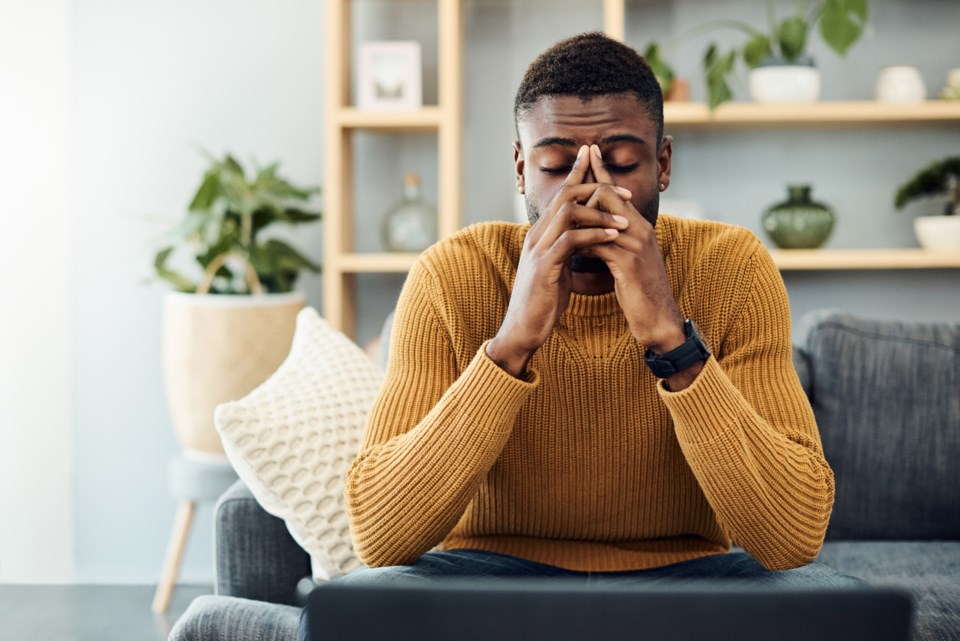For many people, gambling is nothing more than harmless fun.
A winning wager on the outcome of a sporting event or a lucky scratch and win releases a thrill that sends us back for more.
But when does that harmless fun become problematic?
Gambling can affect our wellness when it gets in the way of work, school or other activities - harming our mental or physical health, hurting us financially, damaging our reputations, and even cause problems with family or friends.
Fortunately, help for problem gambling is available and easily accessible from the British Columbia Responsible & Problem Gambling Program, which provides support 24 hours a day, seven days a week.
To access help, anyone can browse the support team to find a service provider suited to their needs, request support online using an online form, or call the toll-free gambling support line at 1-888-795-6111.
As COVID-19 makes us even more vulnerable to developing a problematic relationship with gambling, these support services are more critical than ever.
Restrictions on in-person gatherings have shifted gambling from casinos to online, created conditions for gambling issues to thrive.
Young men, a demographic especially vulnerable to online gambling, are dealing with a lack of distractions and increased social isolation. Healthy activities that would usually replace online gambling aren’t as available to them.
Seniors are also an at-risk group for getting too caught up in gambling. While they are less likely to gamble online, they can be overspending on lottery tickets.
Think you might have a problem or want to understand your relationship to gambling?
BC Responsible & Problem Gambling has an online self-assessment tool that can help identify the difference between recreational and problematic gambling. A quick check-in can sometimes be enough to help us maintain wellness.
Differences between recreational and problematic gambling can also be identified across areas that include enjoyment, attitude toward winning, personal relationships and responsibilities, and financial security.
Enjoyment
People who engage in recreational gambling view it as a fun and exciting activity whether they are winning or losing.
People who are struggling with gambling may experience anxiety when gambling and when planning to gamble. It’s usually a stressful experience whether they’re winning or losing.
Attitude toward winning
Recreational gamblers hope to win big, but generally, accept that it won’t happen. They understand that the odds are against them but accept that the entertainment associated with gambling makes the lost money worth it.
People who struggle with gambling are more likely to believe that gambling is their ticket to winning big and improving their life situation. They may have false beliefs about the degree of control they have over the outcome.
Personal relationships and responsibilities
Recreational gambling doesn’t get in the way of responsibilities or relationships.
Problematic gambling may drive people to ignore other activities, commitments or relationships to devote more time and energy to gambling. This can cause a vicious cycle in which the feelings of guilt further isolate the person from other aspects of life.
Financial security
People who engage in recreational gambling may feel disappointment when they lose but can move on. The money in the bet was not needed for something essential, such as a bill payment.
People who struggle with problem gambling are disappointed about more than just losing money. The money may not have been theirs to lose, or it was needed for something essential. The loss of funds causes significant stress.
Some good questions to ask yourself about your own gambling include: are you experiencing stress because of gambling? Do financial problems weigh you down? Is your gambling causing tension in your relationships? Are other people concerned? Do you want to stop or cut back on your gambling but find it difficult?
The most important thing to remember is that you aren’t alone.
There are solutions for problem gambling, and you can quickly get help from someone who understands the issue.
To take a self-assessment and find help, visit www.bcresponsiblegambling.ca. If you’re looking for more information, Adrienne Cossum, Heidi Furrer, Margaret Sigsworth and Ly Nguyen provide clinical counselling, outreach and education for the Tri-cities area.



